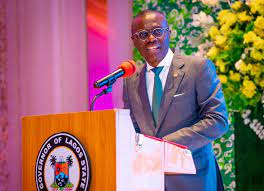Okikiola Qasim
The unfortunate situation of Muslims and Islamic Organizations in Nigeria, as regards the Individual, organizational activities and vision cannot be compared to the level of heritage and fortunes left behind by our founding fathers. Unfortunately, most Muslims of today and most of the new generational Islamic organizations lack vision and focus for the next generation.
Many at times, we often condemn the activities of our founding fathers, relegating their efforts as uncivilized and lacking adequate knowledge.
Meanwhile, the reverse may be the case, as the level of sacrifices, archeological legacies, leadership structures and trust founded by last generation cannot be over emphasized when compared to today’s Muslims vision and mission.
If we take a look at the achievement of Islamic organizations who have been in existence for over 50 years, you will appreciate and understand better my point of argument. Those years, though I was yet to arrive, but the pages of history and reality available attested to the fact that there were many Muslim Individual and organizational achievements than how it is currently within the Islamic organizations.
If we can take some time to reflect on the points here in terms of individual efforts towards the path of calling to Islam, you will agree with me that our founding fathers did everything to sustain Islam for the next generation to inherit with the hope of developing such ideas further.
Moreover, let’s ponder on some of the personalities who for long have been in their individualist calling. Sheikh Muyideen Ajani Bello, would be a perfect example at this point in time. With about 250 Islamic dawah record labels to his credit, he has travelled nationwide and some countries overseas. He said in one of his interviews with Akeem Lasisi, October 26, 2011, publish by Punch newspapers:
“I was still a child when I had my first open air sermon. That time I was so young that one of the old people carried me on his neck to the preaching ground.”
Though, many may not admit to have been influenced by his Islamic tutelage, but the fact remains that, his contributions towards Islamic propagation in Nigeria cannot be overemphasized.
He may not also have many degrees in the conventional profile, neither must he be regarded as someone with the deepest Islamic background, but many Muslims in Nigeria held on to their Islamic faith on the account of his numerous propagation. I am also proud to say, he was the one who conducted my own naming ceremony (Haqeeqa), back then in Kano state.
Furthermore, this category includes the likes of Sheikh Kamaldeen Al-Adabiy, Sheikh Adam Abdullah Al-Ilori, Shiekh Arasim Alaaya, Shiekh Mustapha Suguluul Sanusi, Sheikh Rabui Babaloworo, Shiekh Abubakar Gumi, Sheikh Ahmad Lemu, Femi Abass, Prof. Naibi, Prof K.K Olosho, and their contemporaries.
These people suffered for our collective sovereignty in securing the basic Islamic knowledge for the next generation. Many of their schools graduate yearly over 3,000 students with the basic Arabic Knowledge. Many Islamic countries opened their doors for their students to further balance their educational programs in their universities all over the world.
These people do not only believe in building Mosque structures, they believe in building the faith and knowledge based structures for the subsequent generations.
In another vein, talking about Islamic organization with over 50 years of existence, a good example is Ansar ud-deen society of Nigeria. Let me say this, I am neither a member of the society, nor did I attend any of their schools, I am only being realistic with facts here about the efforts of our founding fathers which we failed to complement.
“The society whose principal mission was promoting the intellectual pursuits of young children of Muslim parents, opened its first primary school in Alakoro in 1931. An education board was created in 1933-1934 to govern the educational programs of the society and to manage the new school. In the 1930s, the primary school consumed most of the society’s financial capital but this did not deter further expansion. In 1942, a ten-year educational plan was initiated which resolved to establish more primary schools, a secondary school for boys and girls and a teachers training institute”.
“In the 1960s, the society participated in the formation of modern Secondary and Grammar schools and, according to research samples, in 1964, close to 30% of Yoruba Muslims were involved with the Ansar Ud Deen Society and about 43% of children (Yoruba Muslims) attended schools run by Islamic Voluntary agencies”.
“With thanks to the educationists, and scholars, ADS has provided elementary, secondary and tertiary education for an innumerable number of young men and women. The number of its primary schools is over 200 while its secondary schools number about 50.
It has the only Muslim College of Education in the country”. More of this information can be found on their website.
Their contemporaries includes, Jamatul Islamiyyah of Nigeria, Nawaeru deen, Ansarul Islamiyyah, Ahmadiyyah groups and lots more that I cannot ascertain their precise year of existence. These organizations were neither known with hate preaching, nor were they reputed for rivalry and superiority claims. Instead, they work with total vision to deliver the message of Islam with all they have, even when it was most difficult to do.
They built the heritage, they were the founder of Supreme Council for Islamic Affairs (NSCIA), MSSN, JNI, MUSWEN, NAHCON, they built Major Central Mosques in Nigeria, they own the all the public schools for the Muslims, acquired the lands for major Id’s praying ground, they were owners of major scholarships Muslims benefits, they fought for Muslims holidays in Nigeria, they left the legacies behind, founded education, built institution, and they worship with all sincerity.
After going through how this founding fathers operates, we stood our ground to be in charge of the affairs of Islam in Nigeria because we believe we have so many things to offer.
We claimed we are more educated than they were, well enlightened, and travelled far and wide and ultimately, rich enough to do anything for Islam. Here we are, we have been authorized to take over and we are now at helm of affairs.
But what do we have today as Muslims? How have we been able to discharge the given authority? What have we achieved individually and collectively? What is our net worth investment in the last 20 years as an individual and as the Islamic organizations for Islam in Nigeria? What are our projections for the next generation? What role specifically have you and I played in the development of the Islamic ideology in Nigeria or better still, can I say, what damages have we caused for our country and Islam at large?
Getting answers to some of these questions may not be coming from my opinion alone, we also have to get some answers ourselves. Here are some of what I understand, coming from how we have been able to personalize Islam and become Muftis (religious scholars who issue influential legal opinions, fatwas) overnight, to the extent that Muftis are now available in almost every organization and locality.
It is very unfortunate that we have decentralized the unionism and welfare that Islam cherished to something else. Our daily congregational prayers that we inherited as the bond, the center of affections and mutual relationships with fellow Muslims has been killed due to Mosques in our private homes, the reasons for this is another discussion.
We have been able to turn the weekly Jumaat into what I call ‘organizational Jumaat’. Some of our scholars are no longer role models that are characterized with Islamic ethics and values. The leadership of the Mosque is now politicized and some incapable fellow now dictate the pattern and Islamic styles of operation.
More so, educational development within the Islamic circles has also been affected. Most of the legacies we inherited are in jeopardy. Our directions for the next generation is no longer divine and we are nowhere to be found.
Some may argue that, we are developing spiritually and knowledge wise. I disagree with such submission, because, what are the parameters to determine our spiritual development when it does not manifest in our organizational performances. Sincerity of purpose and fundamental provisions are in a dire state of emergency.
We cry “no leaders!” in every situation we find ourselves and where we agree to having a relative leadership in control, we battle with disobedience to the authority. In cases where we have both in place, focus become a great challenge. In most cases we often come up with a disturbing challenge that may hinder our collective progress. Our cases are almost at equals to failure if we don’t act fast, that is, if not too late.
I would appeal that we sit tight in every organization, if necessary call for a retreat and take a look at what is wrong with our focus as its regards to taking decision and investing on the religion (Islam).
I would also suggest that we take account of all efforts we have contributed towards Islamic developments in various camps, lets checkout loopholes that we have not attended to, work on it and design a workable solution to some of the identified problem. Perhaps with this, we may begin to record reasonable achievements collectively and which may later amount to our legacy for the next generation.
I rest my case.



